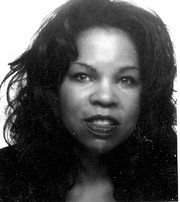Many years ago I saw George Duke in concert at the old Painter Mill Music Fair in Owings Mills, Maryland. I cannot remember what songs he played. However, what has stayed with me to this day is I had never seen before or since heard anyone play music with such verve and enthusiasm.
Jayne Matthews Hopson
Duke’s lifelong love of music was felt and heard in every note. His sound was personal, yet accessible to all. It felt like he was playing just for me; for one golden moment I forgot there were a thousand other people in the concert hall.
A Grammy Award winning keyboardist, Duke released more than 40 albums during a career that spanned four decades. Shortly after he graduated from college he worked as a solo artist. His early collaborations include Frank Zappa, Miles Davis and Edwin Hawkins. Over the years Duke’s superb playing can be heard on projects with Jill Scott, Al Jarreau, Deniece Williams and Stanley Clarke. Kanye West, Daft Punk and Common have sampled his recordings.
Duke was also a successful composer, musical director, and record producer. The range and depth of his compositions was exceptional. Anyone who grooved to hits such as “Dukey Stick” and “Reach For It”, or was brought to tears by the bitter sweet lyrics of “No Rhyme or No Reason” would agree he brought extraordinary talent to each of these roles. Duke’s percussion work on Michael Jackson’s “Off the Wall” helped make the album one of the greatest pop records of all time.
However, what many of his admirers may not know is Duke’s lifework included a fifth profession. He was an educator. His 2011 essay on the importance of the arts in public schools is an eloquent response to anyone who questions whether music education matters in our public schools.
Duke credits his daily exposure to music in elementary school as solid re-enforcement for his budding interest in playing the piano. “During my formative years I can think of nothing more important than my music classes” wrote Duke. “There is no doubt in my mind that I wouldn’t have developed as quickly or as well without the training I received in school, and I must affirm it was a public school.”
In his discussion of the indirect, but equally important benefits of music education Duke references his own experience to illustrate the character building skills children acquire in a school marching band. “I had to learn to play trombone while marching in step with everyone else, follow directions, make the right moves and remember where I was supposed to be on the field at any given time, and that includes marching in the rain in mud slogged shoes.”
Duke’s love of music began when he was quite young. He had just started school when his mother took him to Duke Ellington concert. He was impressed by the intelligence and stature of Ellington. In a USA TODAY article Duke recalled seeing Ellington in live performance, “He had all these guys around him, and he was waving his hands conducting, and he spoke very intelligently. His name was Duke and my last name was Duke. That moment in time set the stage for me.”
In preparation for his professional music career, Duke pursued and earned a bachelor’s degree in trombone and composition, with a minor in contrabass from the San Francisco Conservatory in 1967. He earned his Master’s degree in composition from San Francisco State University and taught courses on Jazz and American Culture at Merritt College in Oakland, California.
Duke asks and answers the question, is music in public school necessary? He writes, “I say with no hesitation ABSOLUTELY YES. Music is as important as the other sciences. It is the other side of the brain and both need to be exercised and utilized. Life is about balance and music helps create that balance and release Music training in school where one plays or sings with others helps build life skills even if one doesn’t continue in the field.”
Duke believed school music programs help students “learn various disciplines that stay with a child for the rest of their lives. A strong music program gives children attainable goals, something to look forward to, challenges that keep their minds occupied with positive creative thought. There are enough negative distractions in the world and a little music training can go a long way towards shaping and guiding a child’s future in a positive direction.”
In closing his essay Duke wrote, “Each of us must decide for ourselves the reasons that school music programs are important and necessary. It’s obvious to me that early school music programs lay the foundation for better music and musicians in the future. But along with that thought process must come a call to action, an unabashed zeal to speak that truth when and where necessary. WE MUST KEEP MUSIC IN THE SCHOOLS!”
Jayne Matthews Hopson writes about education because “only the educated are free.”
